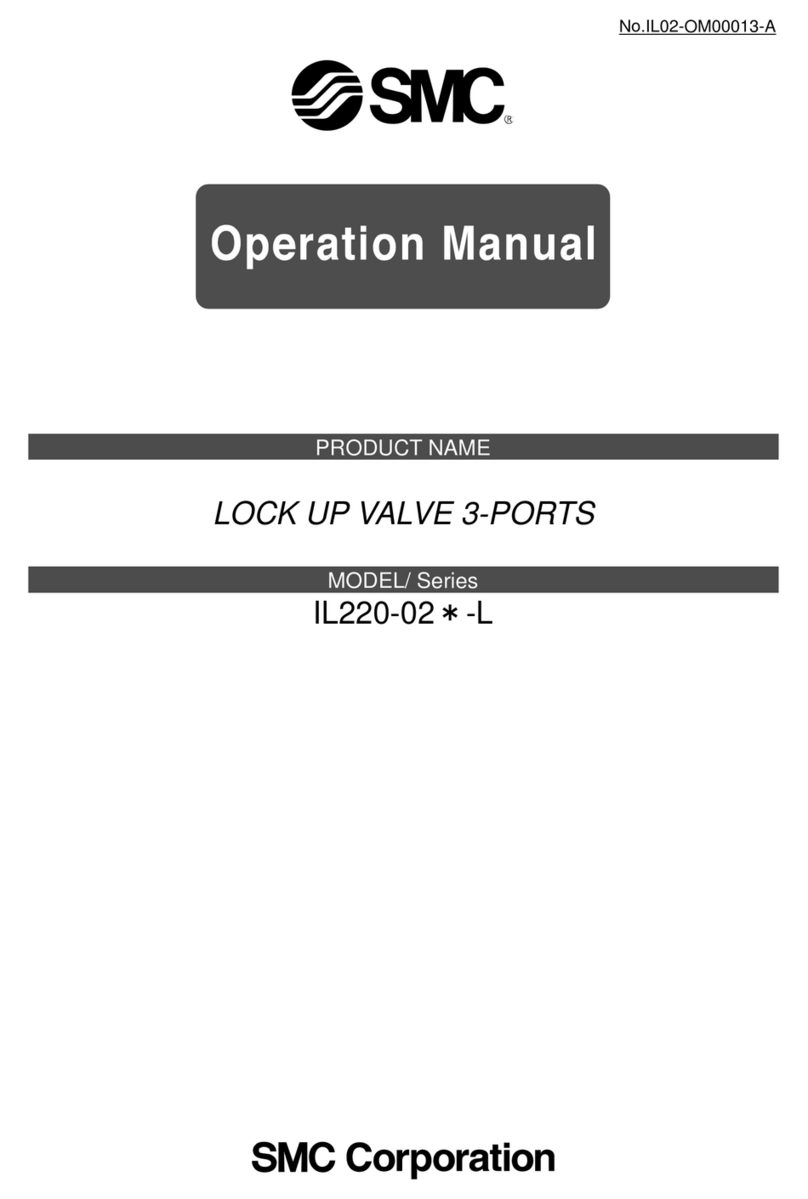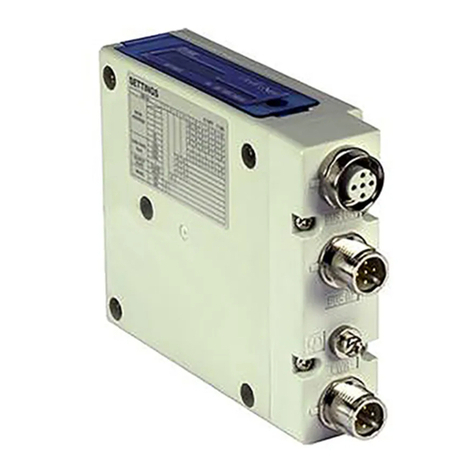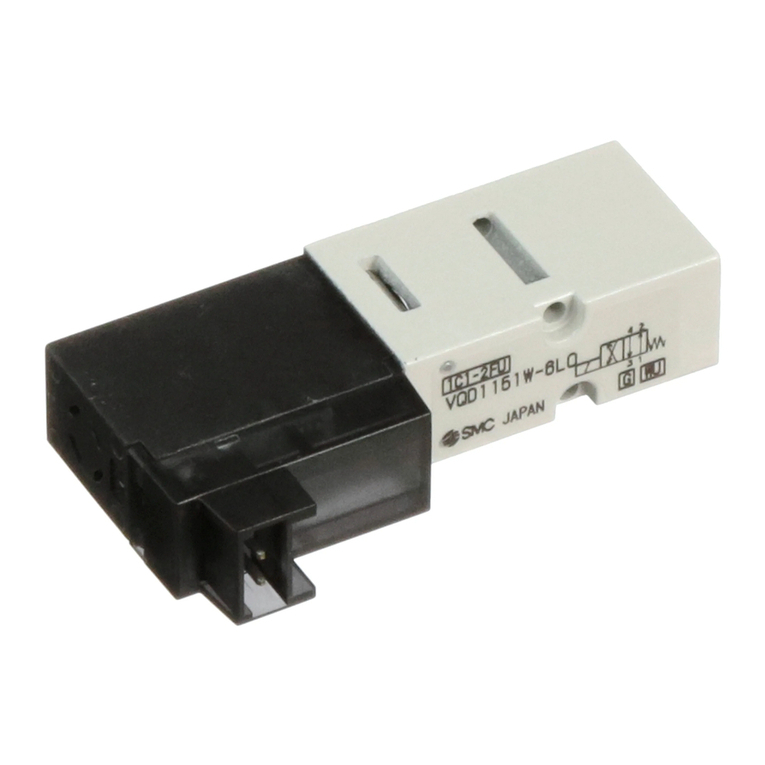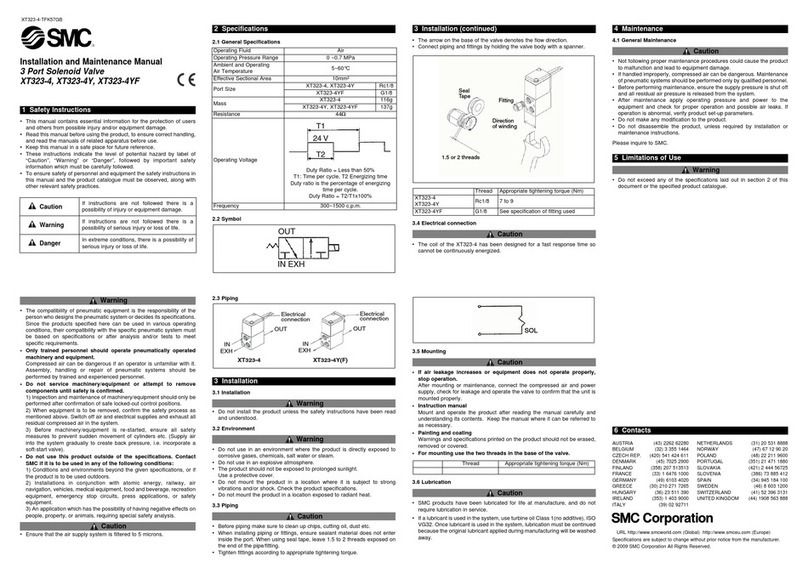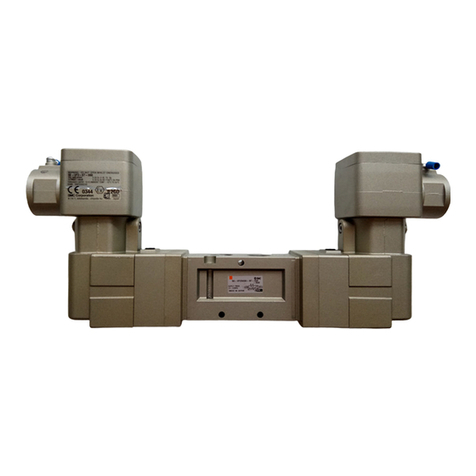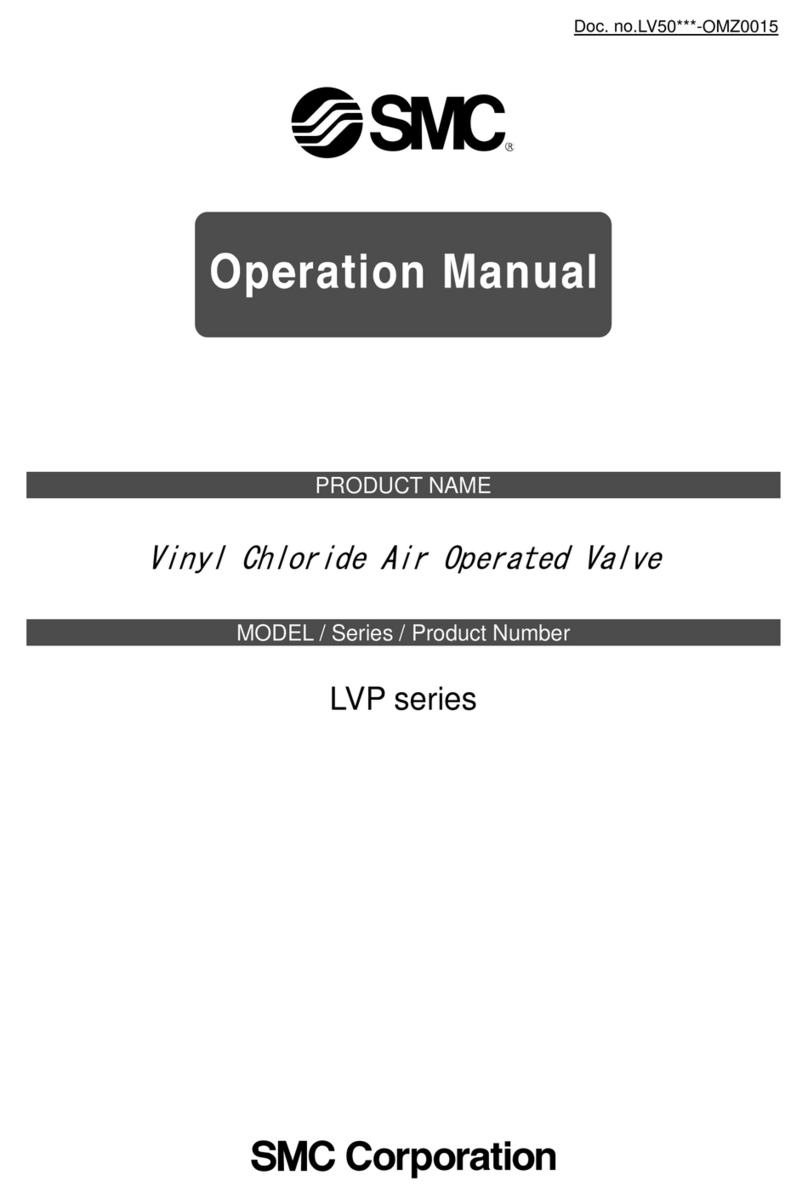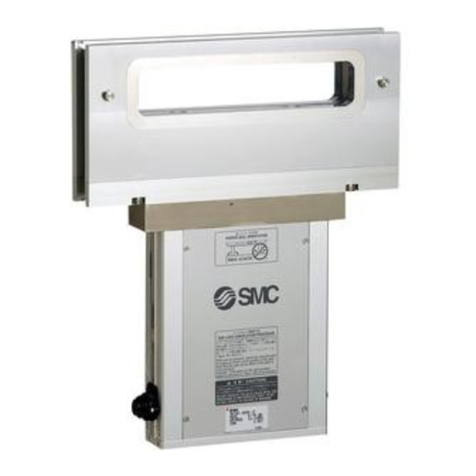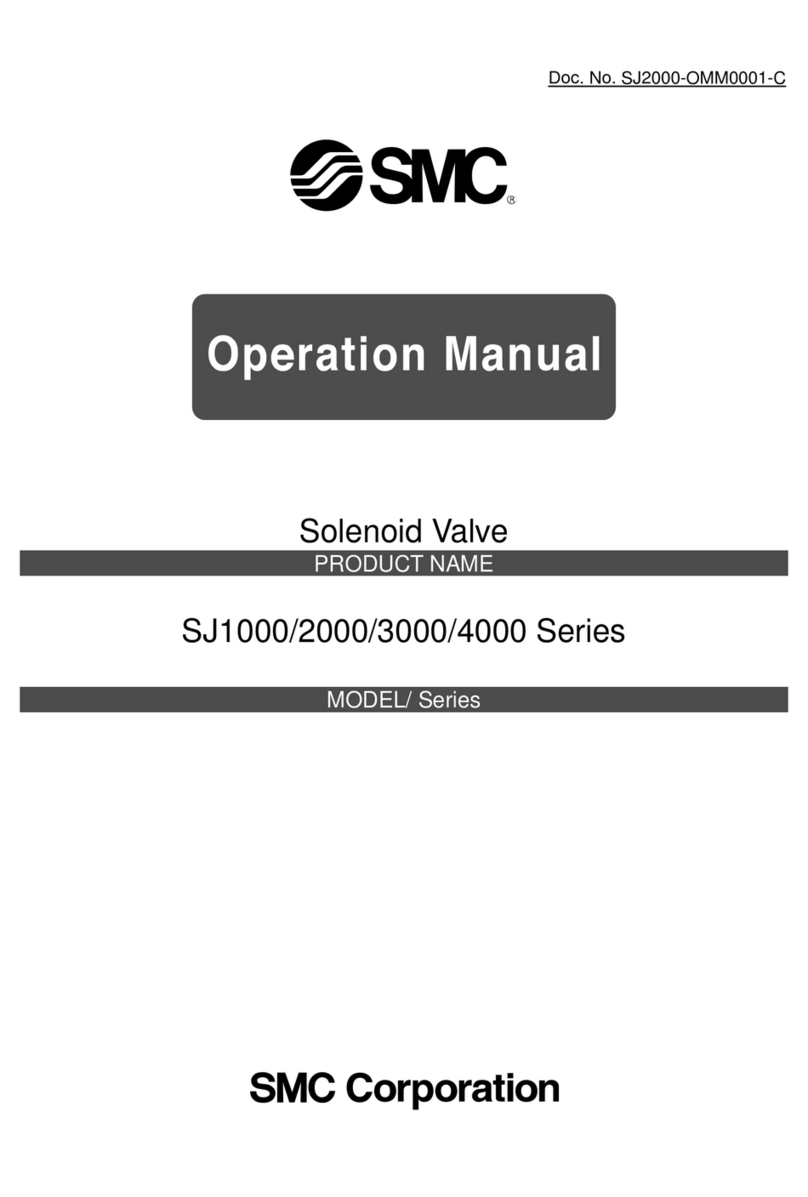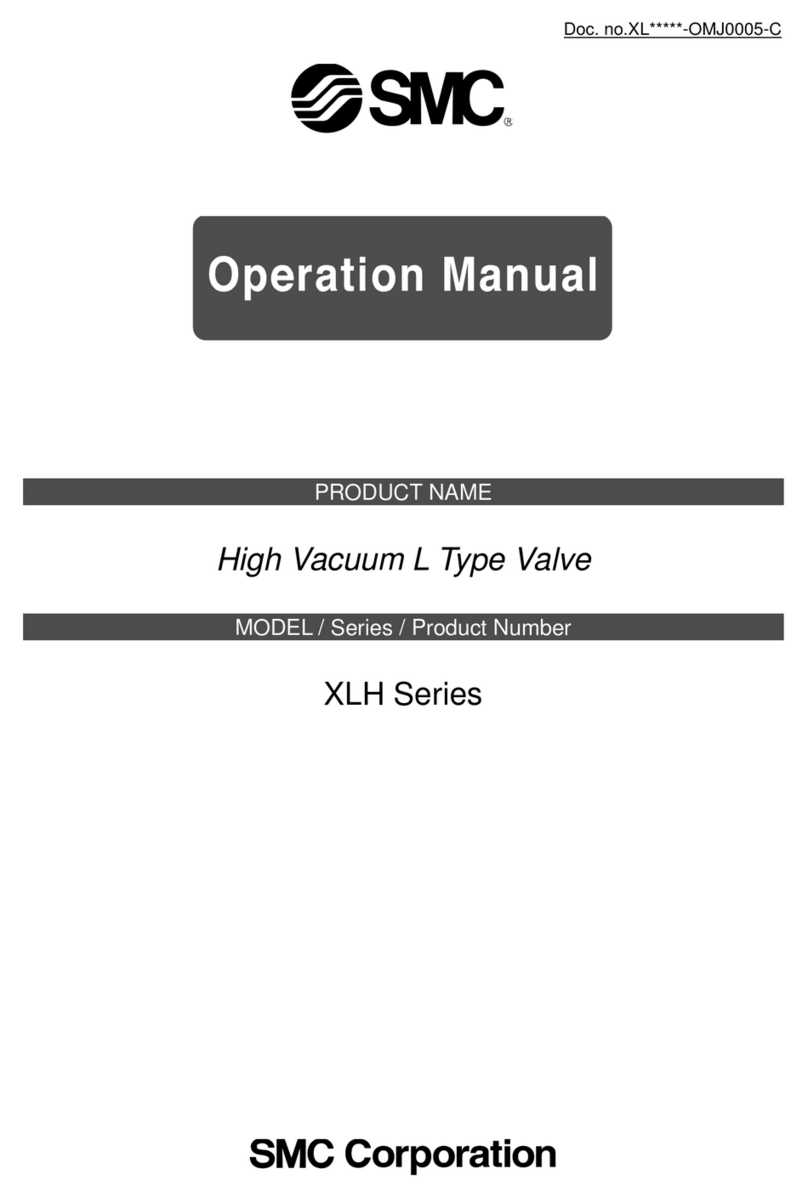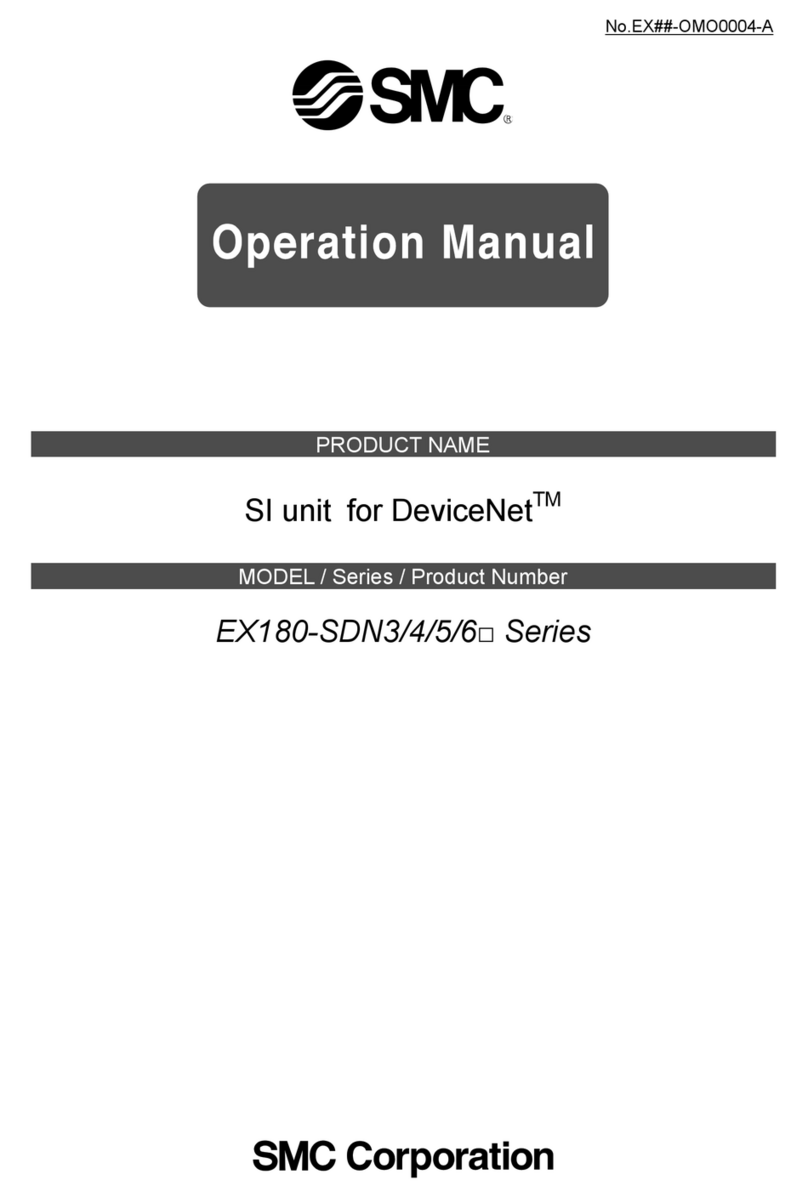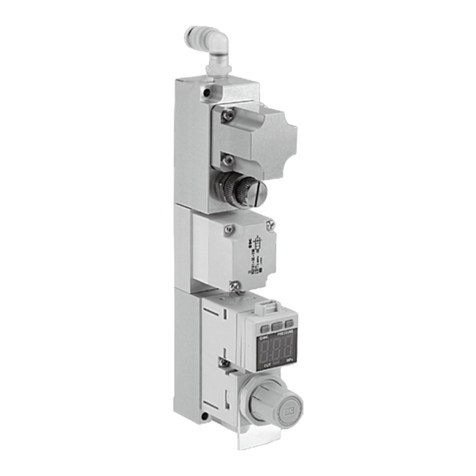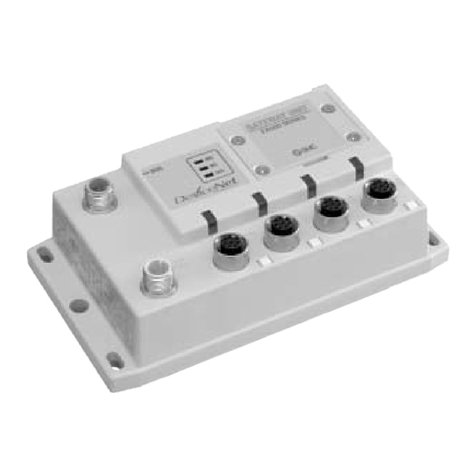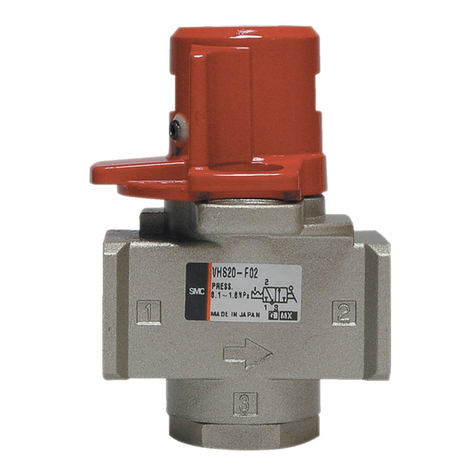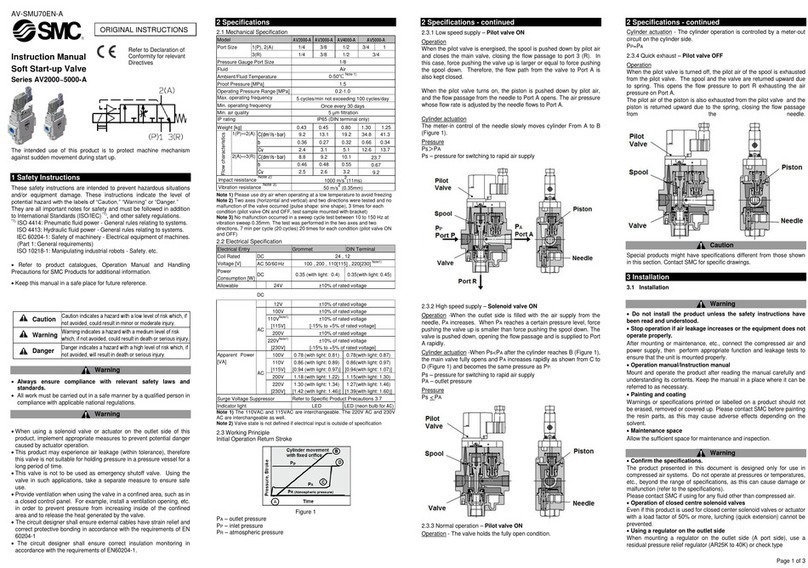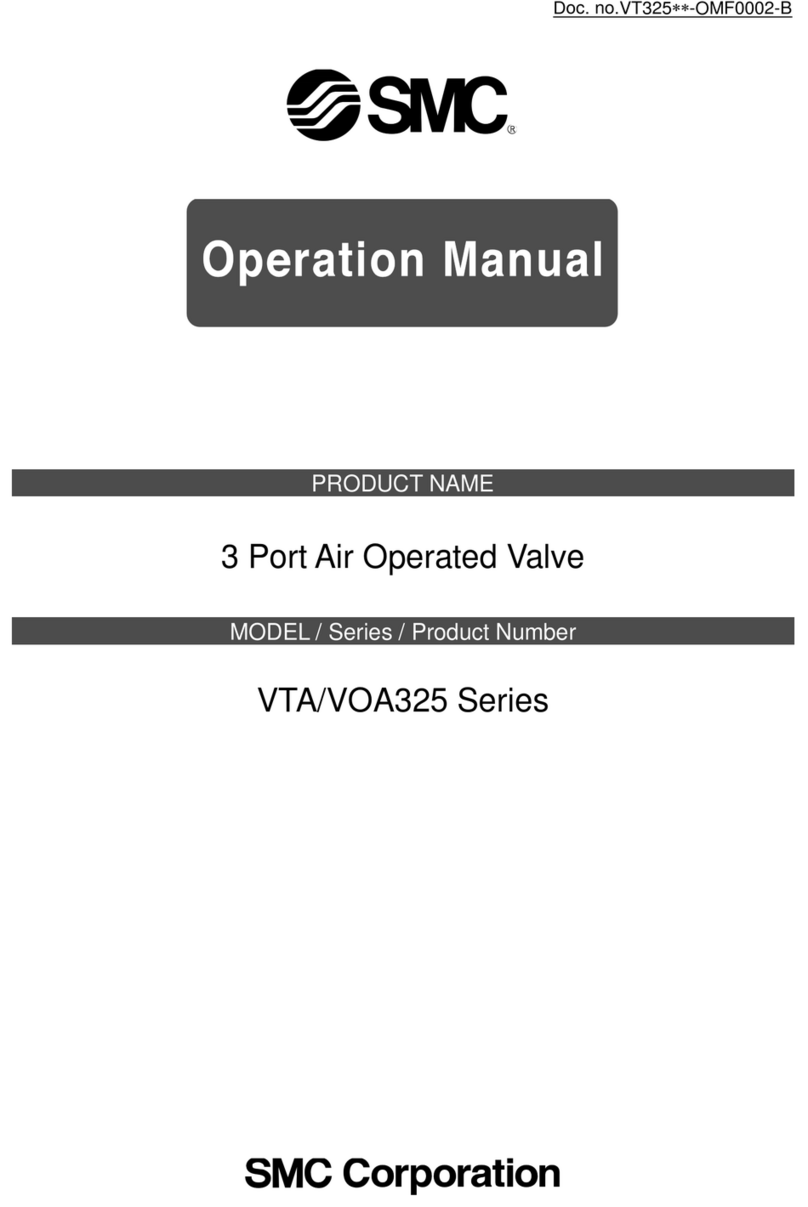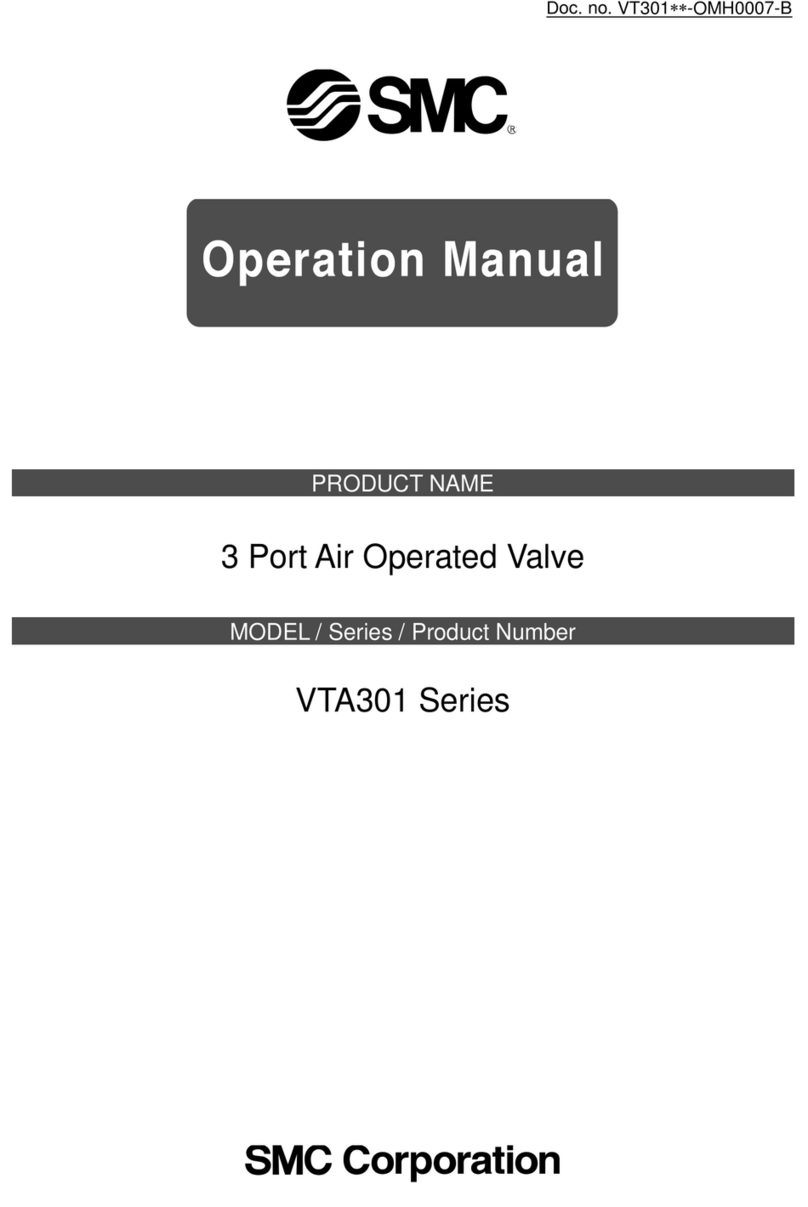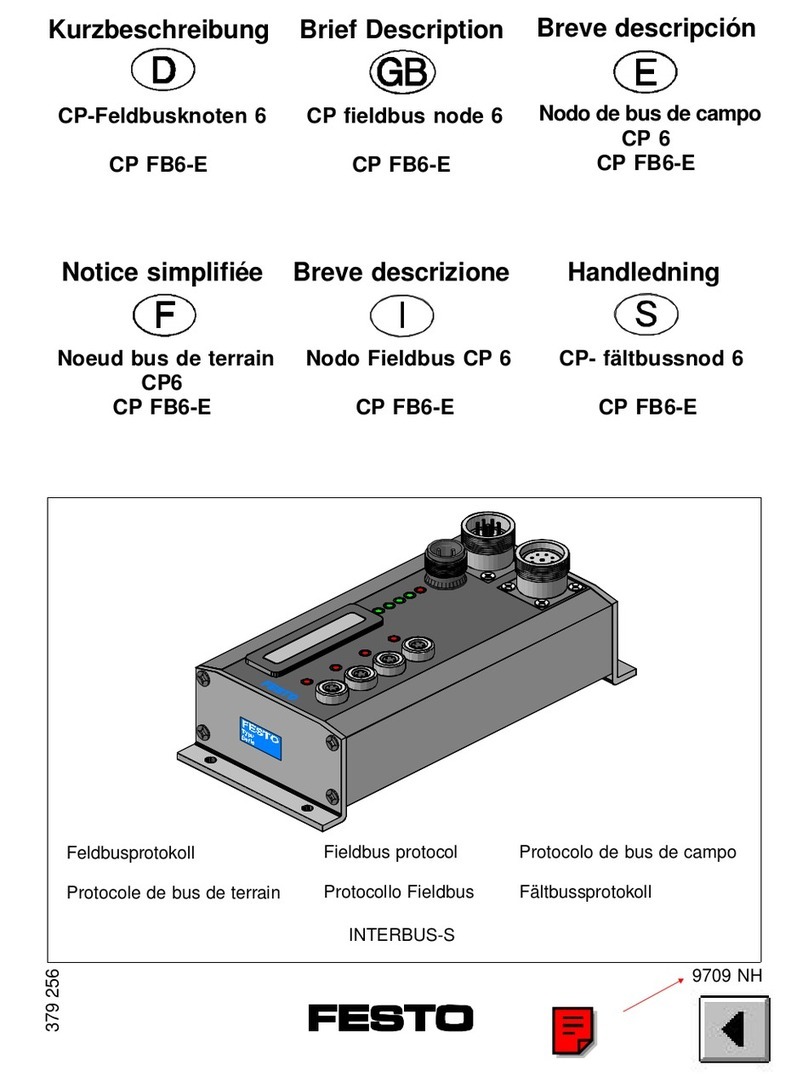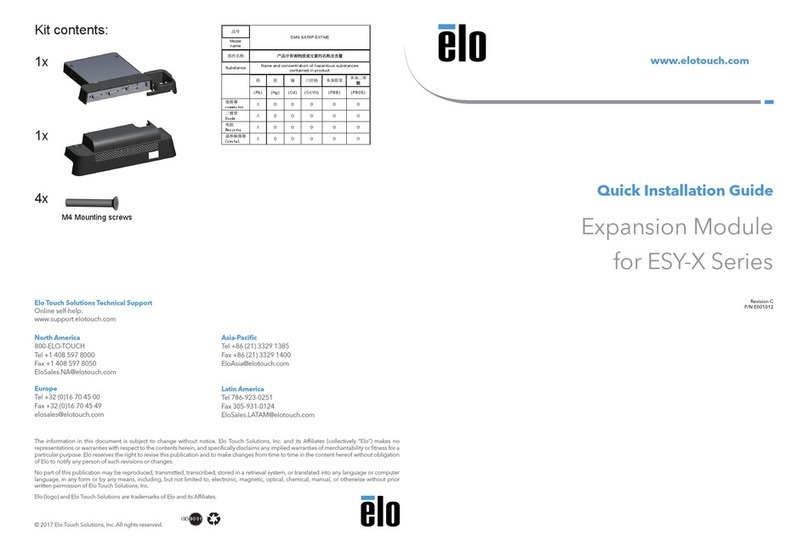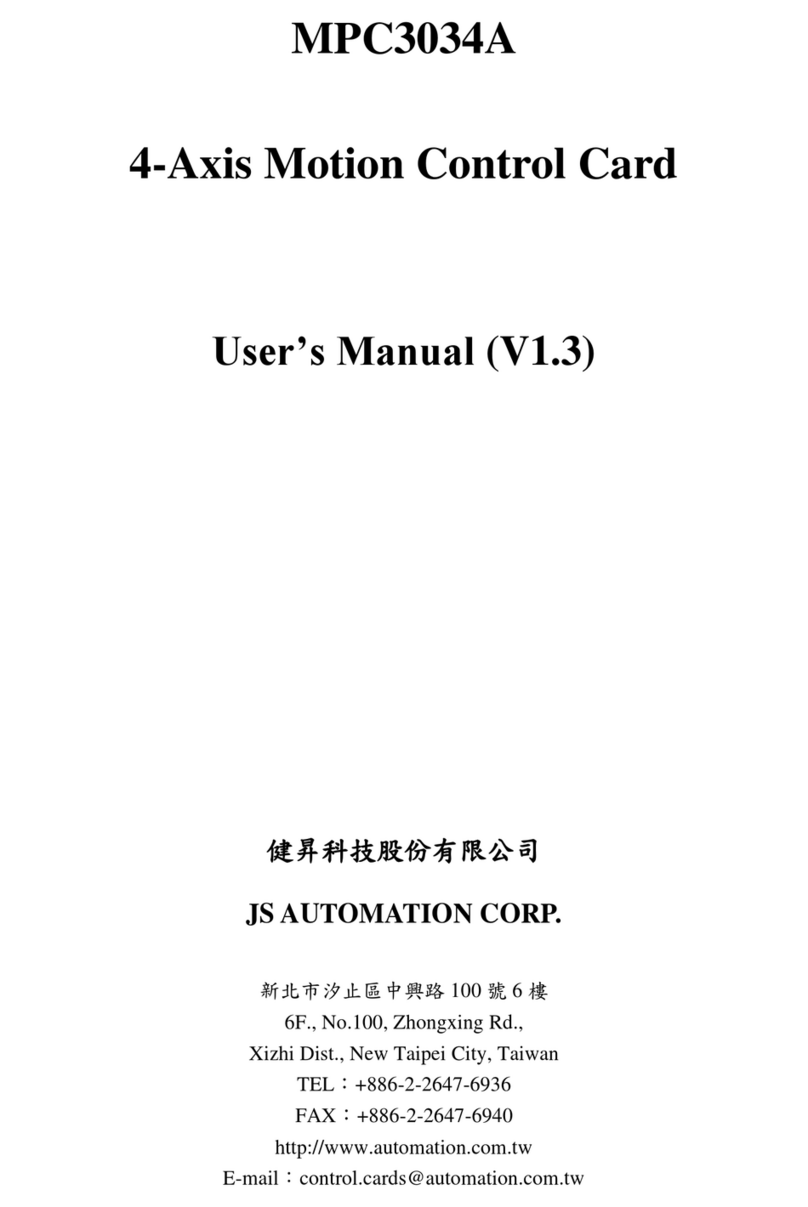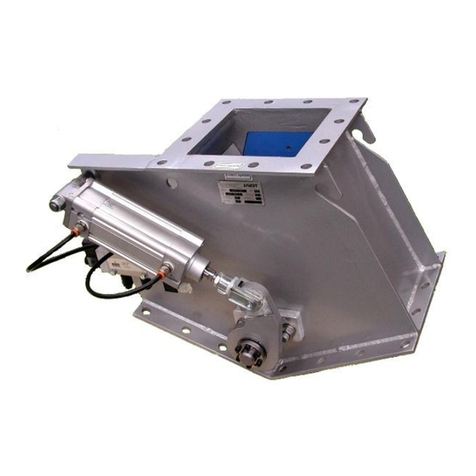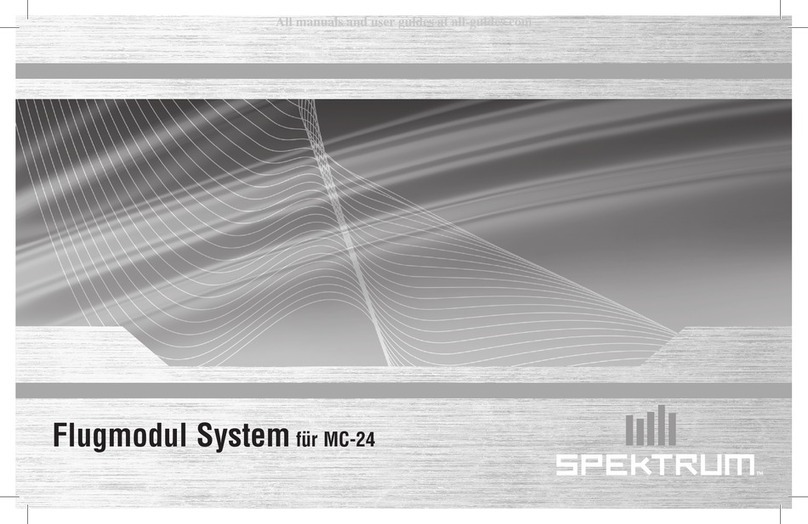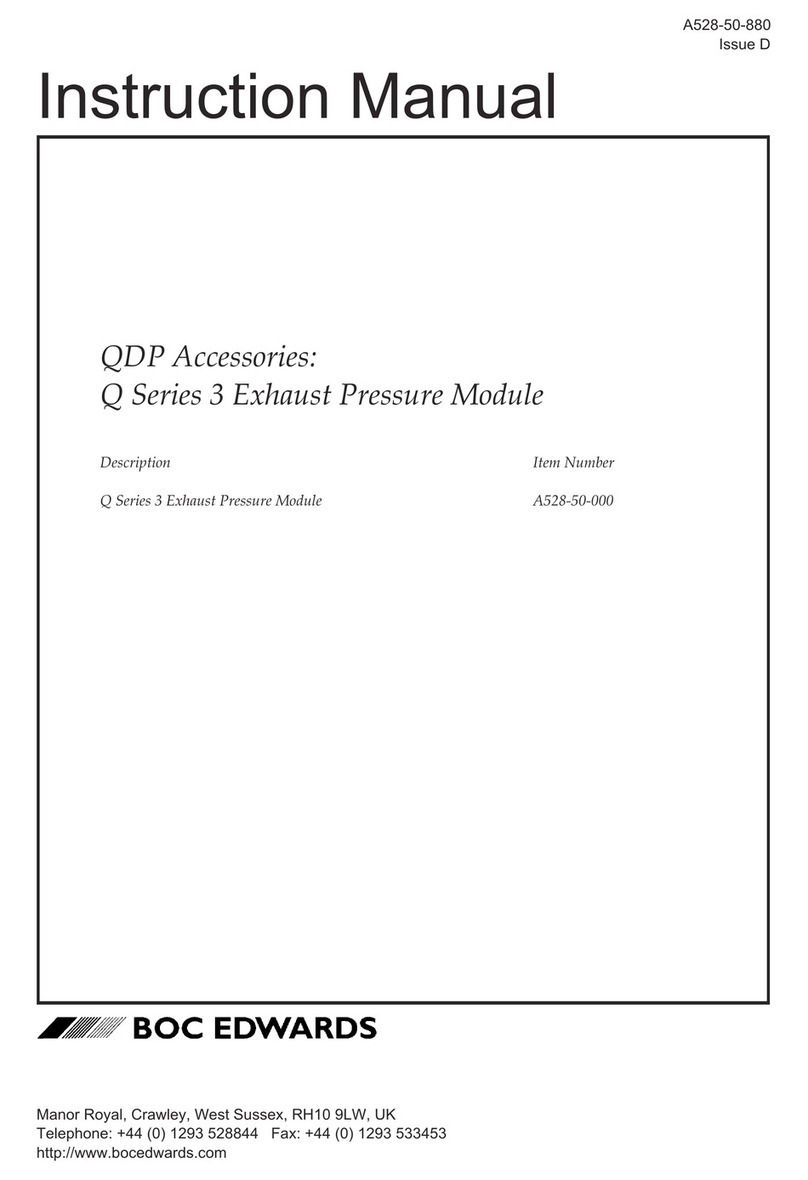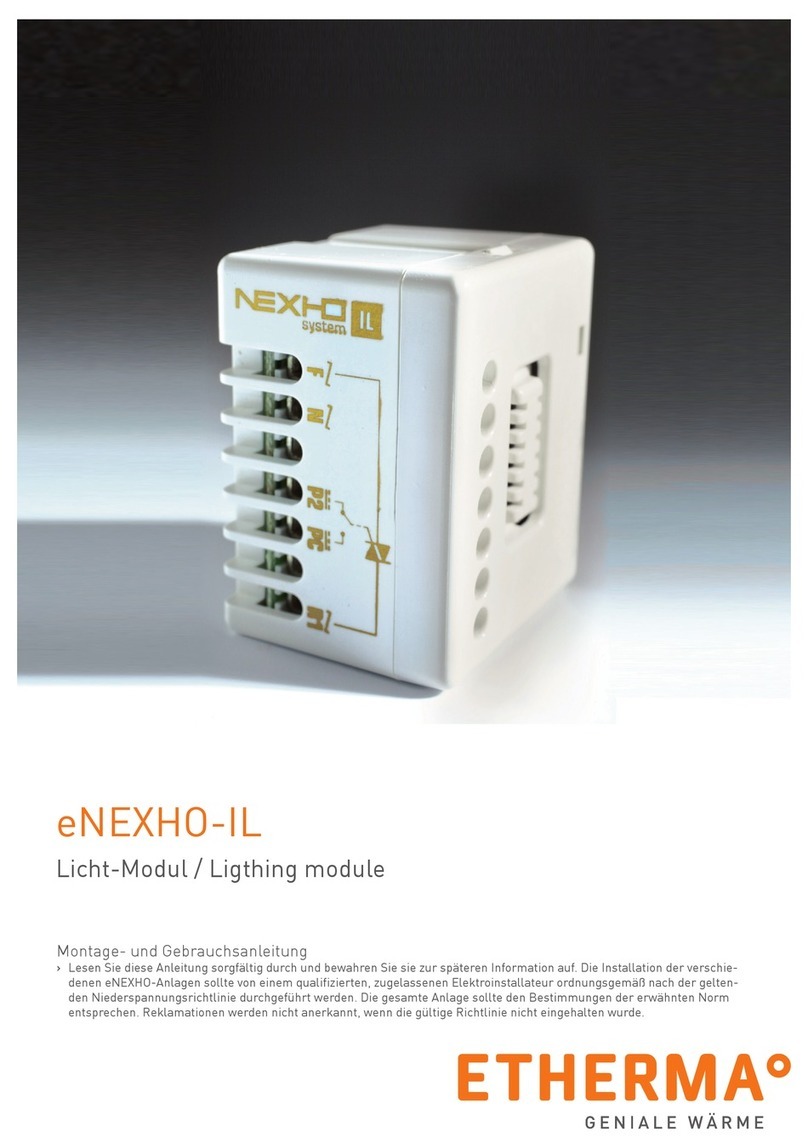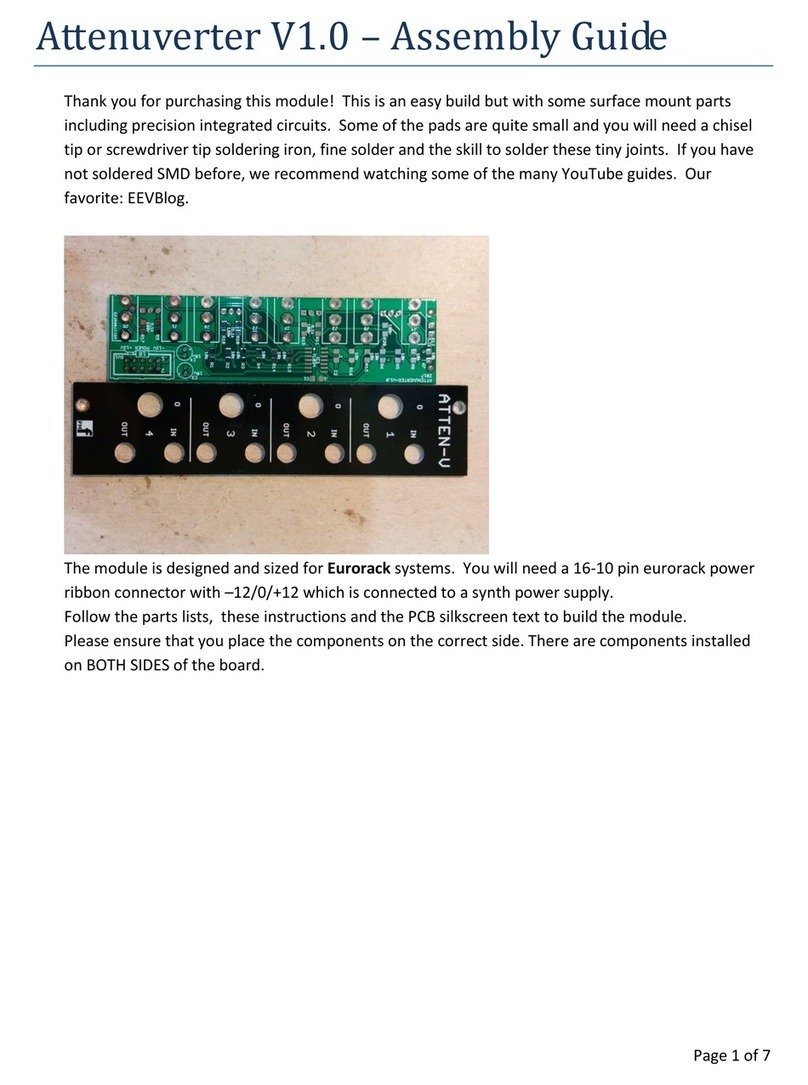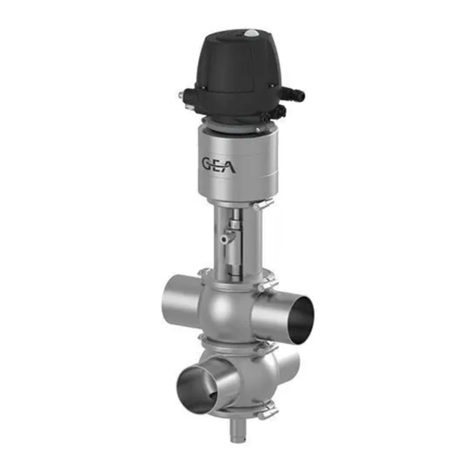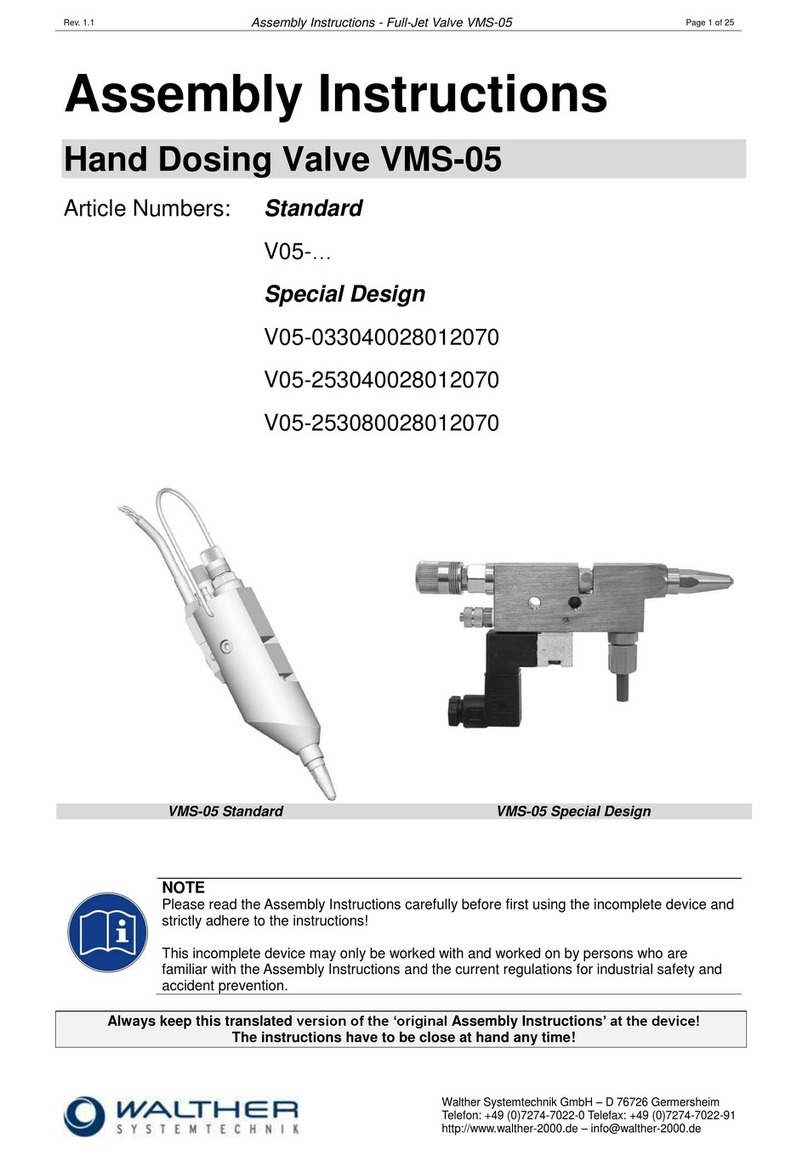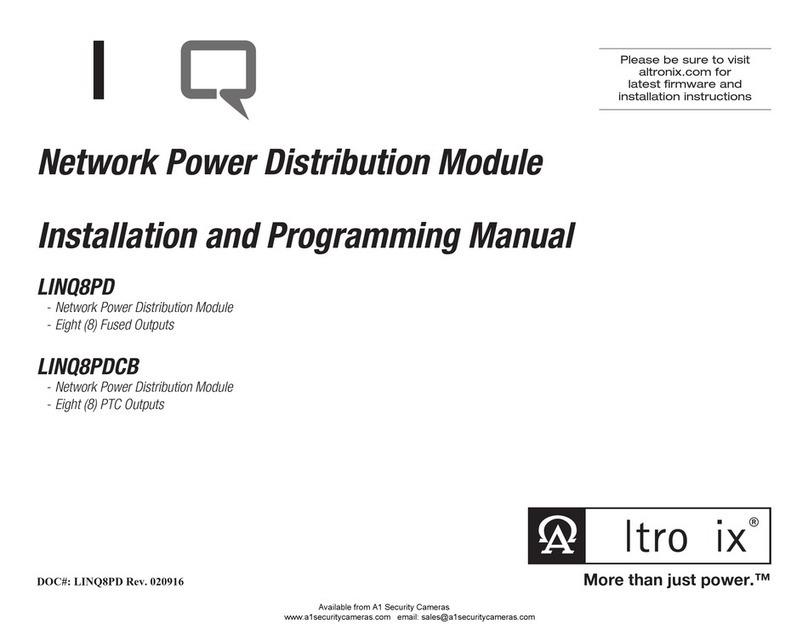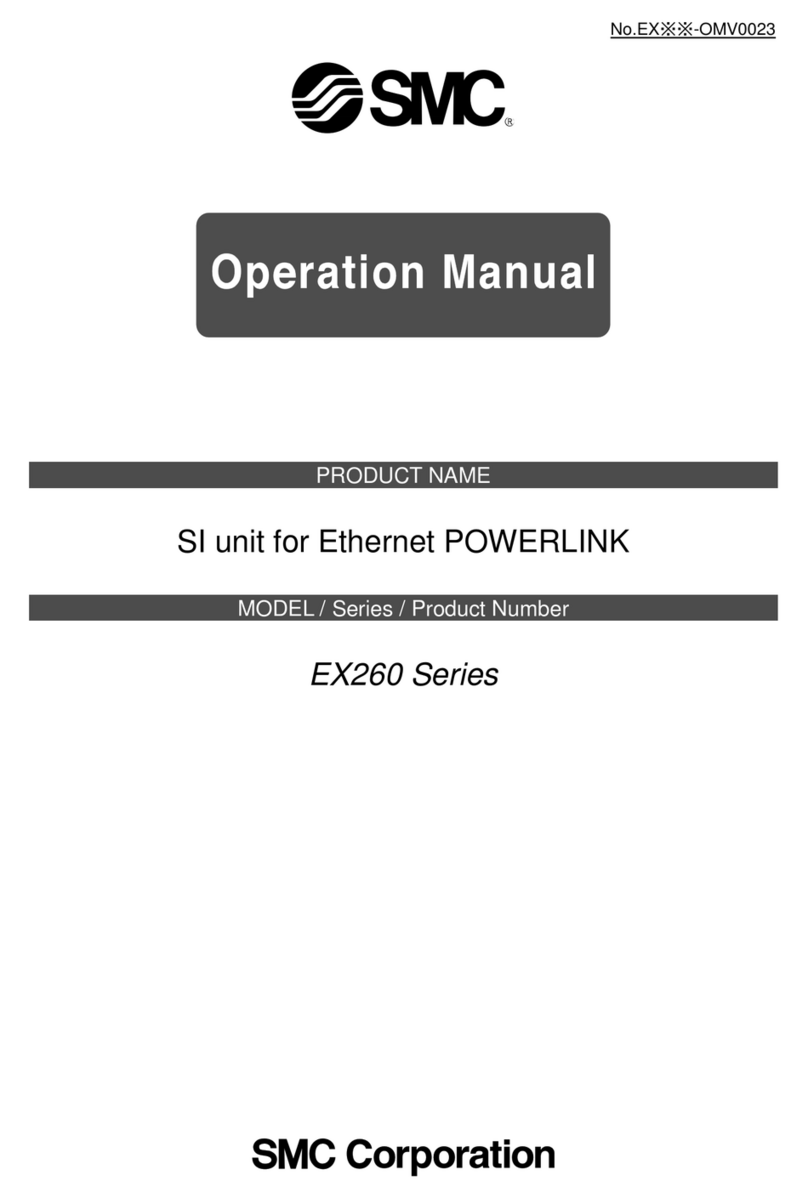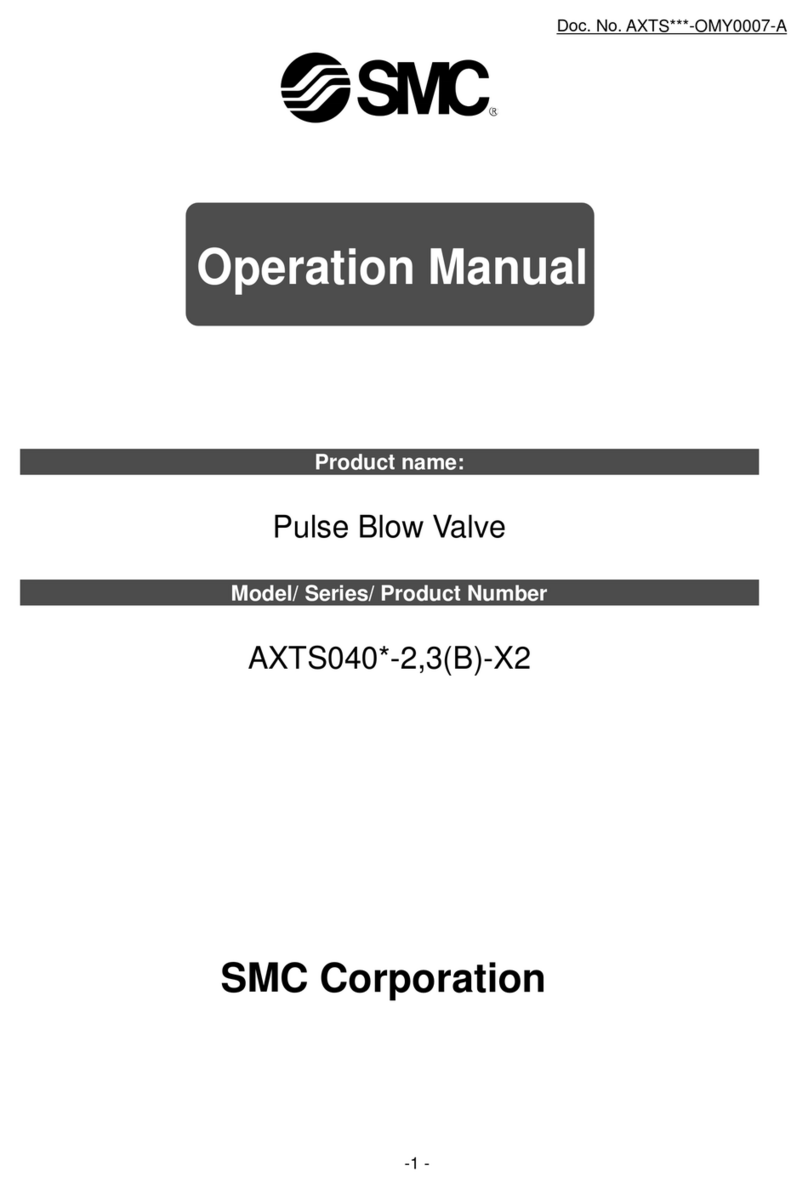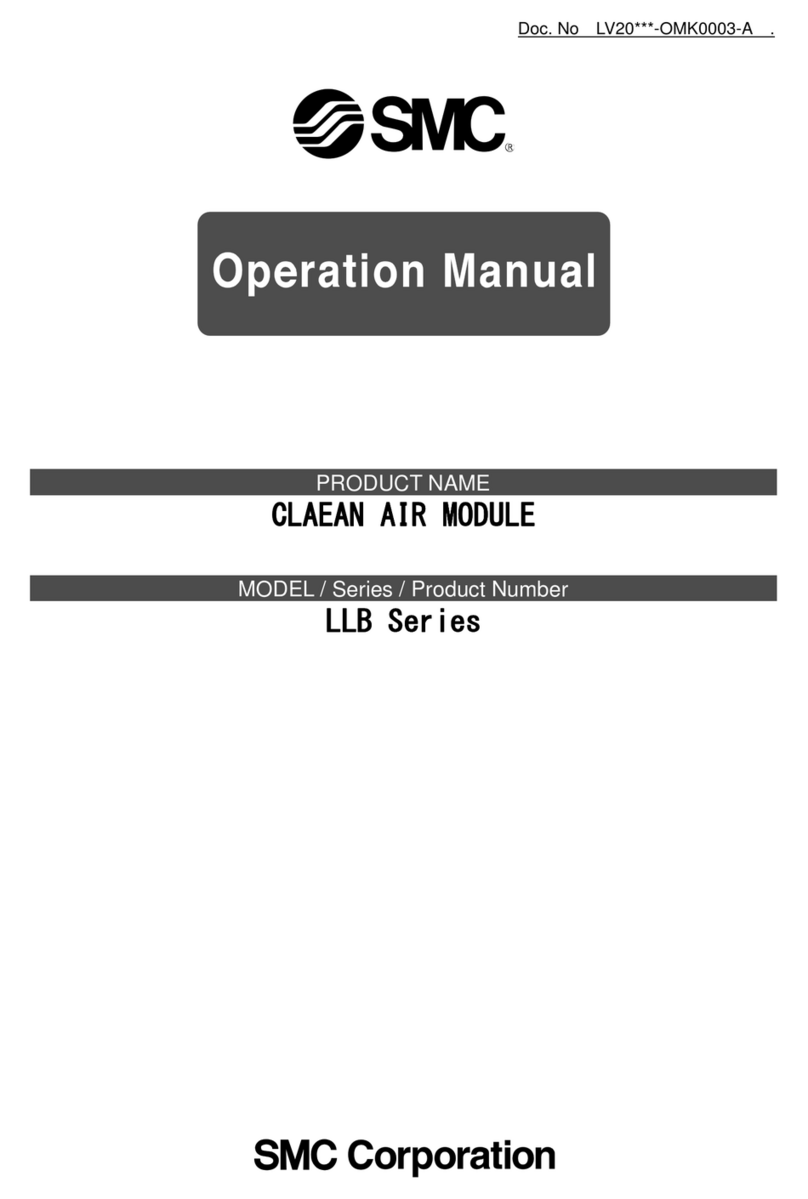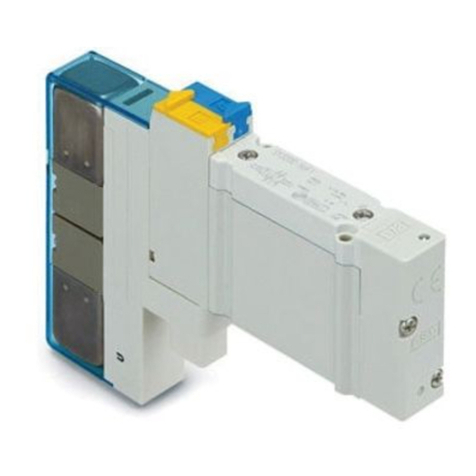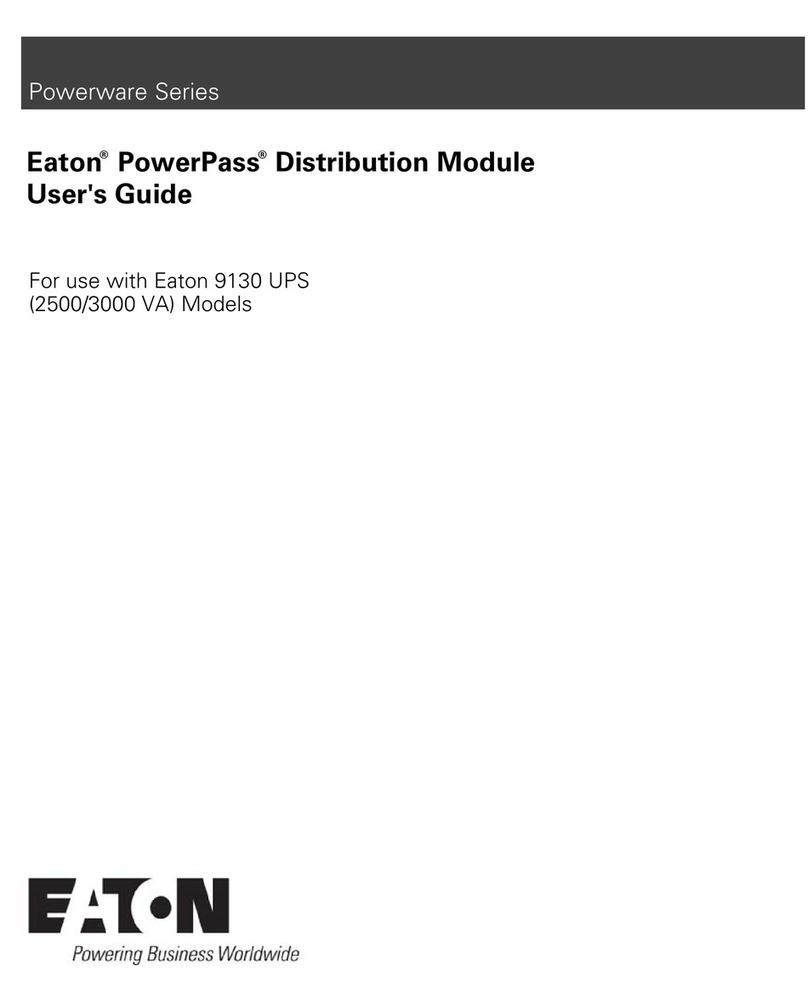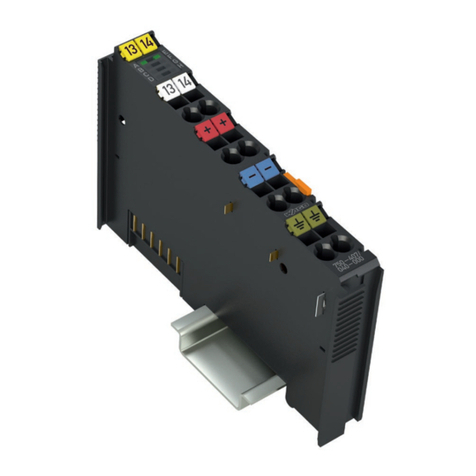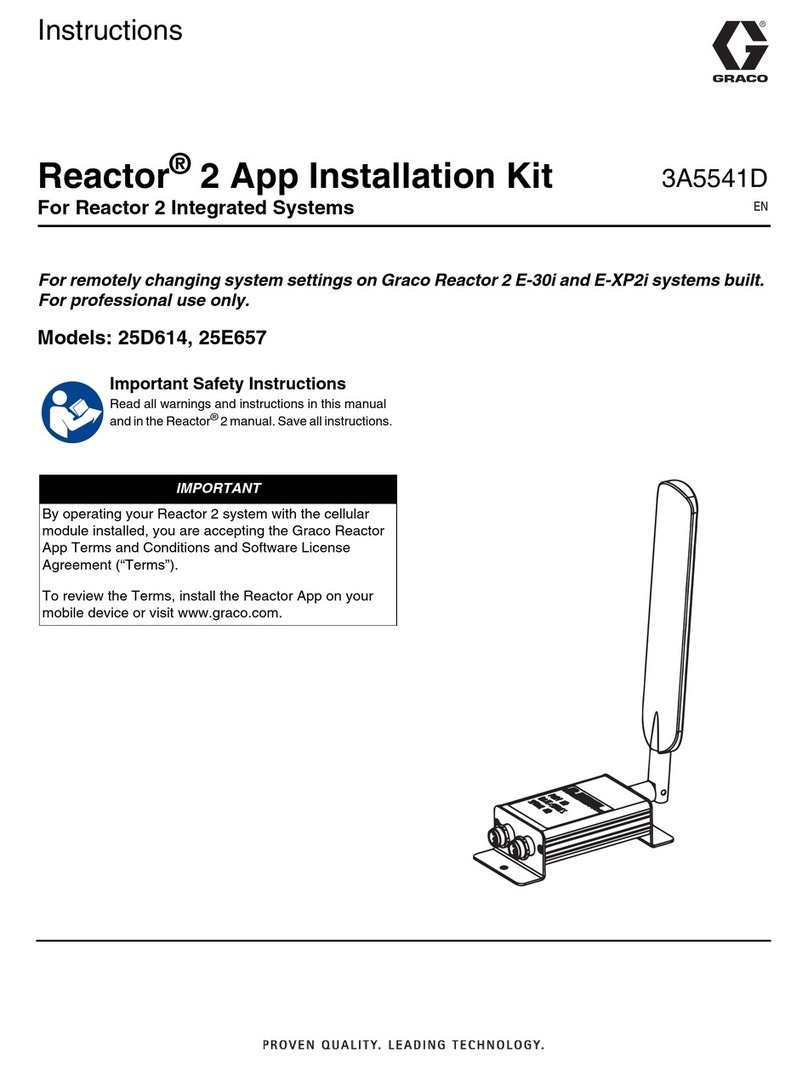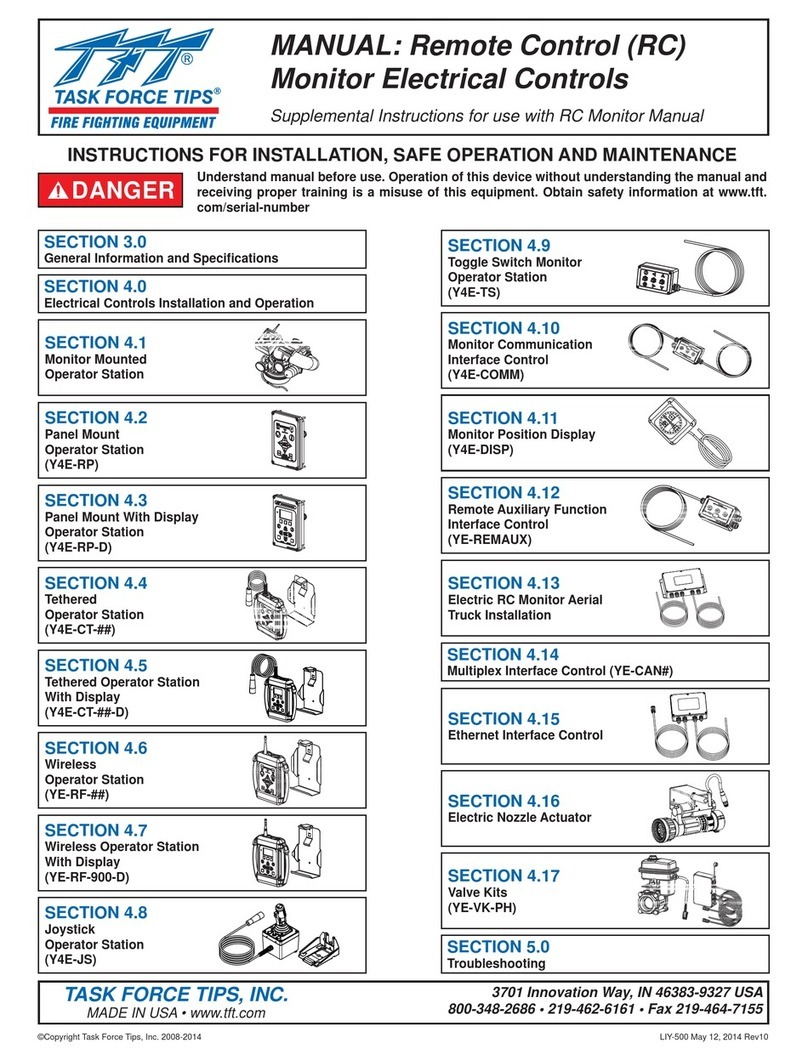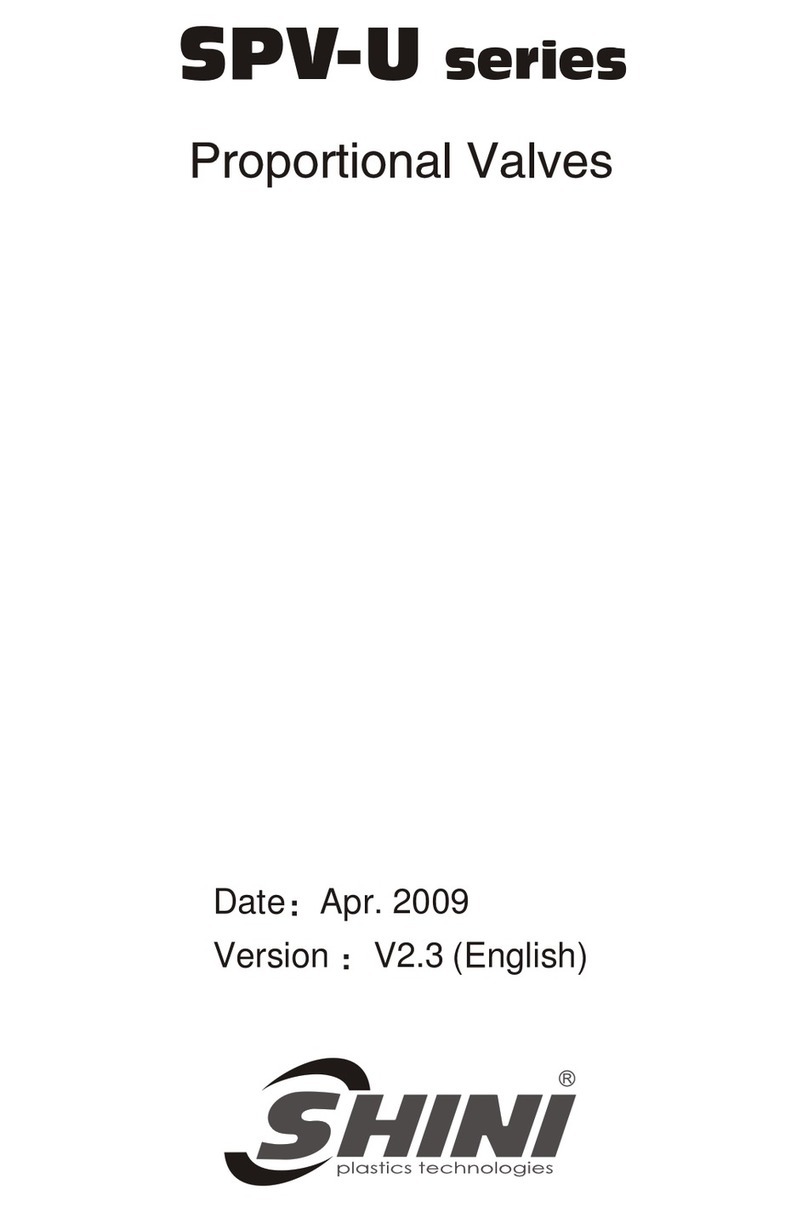1. Confirm the specifications
Products represented in this instruction manual are
designed only for use in compressed air systems
( including vacuum).
Do not operate at pressures or temperatures, etc.,
beyond the range of specifications, as this can cause
damage or malfunction.
We do not guarantee against any damage if the
product is used outside of the specification range.
2. Actuator drive
When an actuator, such as a cylinder, is to be driven
using a valve, take appropriate measures (such as the
installation of a cover or the restricting of access to the
product) to prevent potential danger caused by
actuator operation.
3. Intermediate stops
For 3-position closed center, it is difficult to make the
piston stop at the required position accurately due to
the compressibility of air.
Furthermore, since valves and cylinders are not
guaranteed for zero air leakage, it may not be possible
to hold a stopped position for an extended period of
time. Please contact SMC if it is necessary to hold a
stopped position for an extended period of time.
4. Effect of back pressure when using a
manifold.
Use caution when valves are used on a manifold
because actuator may malfunction due to
back-pressure. Especially when using a 3-position
exhaust center valve or a single acting cylinder, take
appropriate measures to prevent the malfunction by
using it with an individual exhaust manifold .
5. Holding pressure (including vacuum).
Since the valve are subject to air leakage, they cannot
be used for applications such as holding pressure
(including vacuum) in a pressure vessel.
6. Not suitable for use as an emergency
shut-off valve, etc.
The valves listed in this instruction manual are not
designed for safety applications such as an emergency
shutoff valve. If the valves are used for the mentioned
applications, additional safety measures should be
adopted.
7. Release of residual pressure
For maintenance and inspection purposes install a
system for releasing residual pressure. Especially in
the case of 3-position closed center valve, ensure that
the residual pressure between the valve and the
cylinder is released.
8. Operation in a vacuum condition
When a valve is used for switching a vacuum, take
measures to install a suction filter or similar to prevent
external dust or other foreign matter from entering
inside the valve.
In addition, at the time of vacuum adsorption, be sure
to supply a constant supply of vacuum. Failure to do
so may result in foreign matter sticking to the
adsorption pad or air leakage, causing the workpiece
to drop.
9. Regarding a vacuum switch valves and
vacuum release valves
If a non-vacuum valve is installed in the middle of a
piping system that contains a vacuum, the vacuum
condition will not be maintained. Use a valve
designed for use under vacuum conditions.
10. Double solenoid type
When using the double solenoid type for the first time,
actuators may travel in an unexpected direction
depending on the switching position of the valve.
Implement measures to prevent any danger from
occurring when operating the actuator.
11. Ventilation
Provide ventilation when using a valve in a confined
area, such as in a closed control panel. For example,
install a ventilation opening, etc. in order to prevent
pressure from increasing inside of the confined area
and to release the heat generated by the valve.
12. Extended periods of continuous
energization
・If a valve will be continuously energized for an
extended period of time, the temperature of the valve
will increase due to the heat generated by the coil
assembly.
This will likely adversely affect the performance of the
valve and any nearby peripheral equipment.
Therefore, if the valve is to be energized for periods
of longer than 30 minutes at a time or if during the
hours of operation the energized period per day is
longer than the de-energized period, we advise using
a valve with specifications listed below.
・Pilot operated:A 0.4 W or lower valve, such as the
SY/JSY series, or a valve with a power-saving circuit
・Direct operated: A continuous duty type valve such as
the VK series or the VT series If conflicting
instructions are given in the “Specific Product
Precautions” or on the “How to Order Valves” page,
give them priority.
13. Do not disassemble the product of
make any modifications, including
additional machining.
Doing so may cause human injury and/or an
accident.
14. Resumption after a long period of
holding time
When resuming operation after a long period of
holding time, there are cases in which, regardless of
whether the product is in an ON or OFF state, there
is a delay in the initial response time due to
adhesion.
Conducting several cycles of running-in operation
will solve this problem. Please consider
implementing this before resumption.
1. Precautions for 2-position double
solenoid valves
If a double solenoid valve is operated with momentary
energization, it should be energized for at least 0.1
seconds. However, depending on the piping
conditions, the cylinder may malfunction even when
the double solenoid valve is energized for 0.1 seconds
or longer. In this case, energize the double solenoid
valve until the cylinder is exhausted completely.
